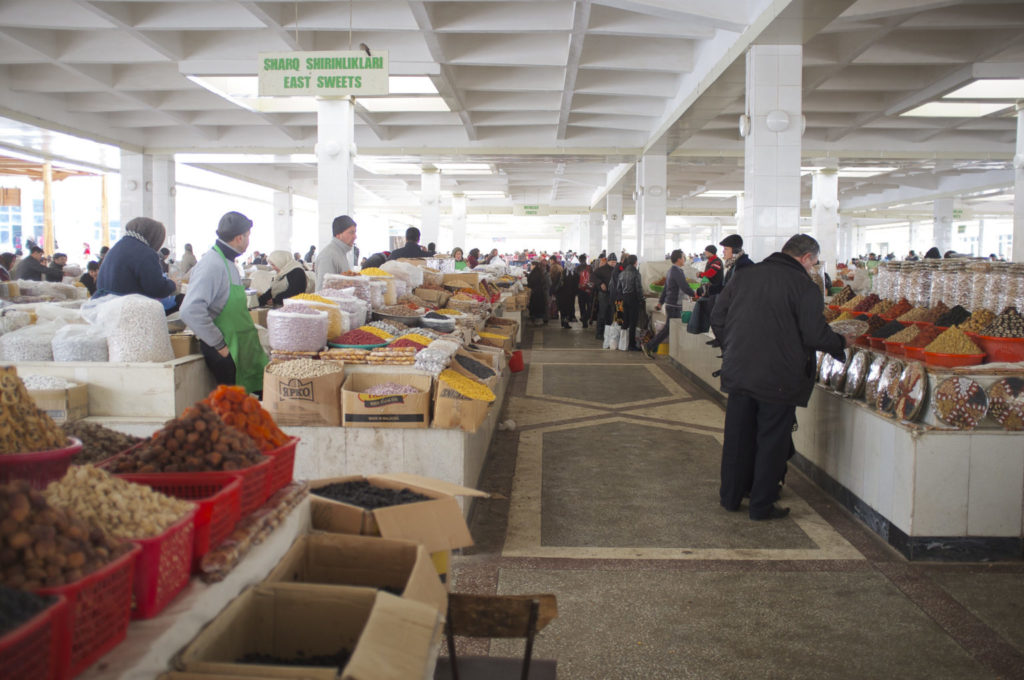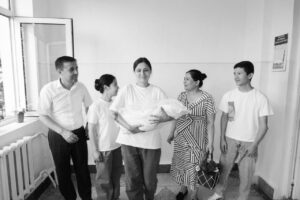The European Bank for Reconstruction and Development (EBRD) invested 690 million dollars in Uzbekistan in 2021. The two partners have cooperated exceptionally well in the sectors of green energy and the economic development of the country. This article was originally published on Novastan’s French website on 7 February 2022. On 27 January, the European Bank for Reconstruction and Development (EBRD) announced that it had invested nearly 690 million dollars (approx. 571 million GBP) in 22 projects in Uzbekistan during 2021. The Kazakh media outlet Kapital.kz reports that for the second year in a row, Uzbekistan received the largest financial contribution from the EBRD in Central Asia ahead of Kazakhstan, in which the Bank invested 630 million dollars (503 million GBP) during 2021.
“I am very proud of our commitment and our determination to deliver solid results, in spite of setbacks linked to the pandemic. We are privileged to live in an Uzbekistan in the midst of reformation and to be able to contribute to its success,” said Alkis Drakinos, Director of the EBRD’s Investment Operations in Uzbekistan.
Investments in a sustainable and green transition
The funds from the Bank encouraged the production of renewable energy, green loans and a modernization of essential infrastructure, as well as supported small domestic enterprises. In particular, investment in the green sector was the most significant, notably with 24.8 million dollars (20.5 million GBP) invested in helping to construct and to put in operation a 100 megawatt (MW) solar photovoltaic plant near Samarkand, in the country’s south-east. The French business Total Eren, linked to Total Energies, has been tasked with the construction of this plant. Read more on Novastan: Uzbekistan: Total Eren’s solar plant fully funded As one of the country’s first renewable energy projects in the private sector, this plant is expected to help diversify the array of energy, which is currently dominated by fossil fuel power stations. In addition, a loan of approximately 70 million dollars (57.8 million GBP) has enabled the restoration of water sanitation and waste management infrastructure, allowing 170 000 people living in the region of Namangan, in the north-east of Uzbekistan, access to clean drinking water.
Investments to conform with Paris Agreement targets
The proportion of sustainable investments within the total funding grew by 29% during 2021. This comes under the EBRD’s Green Economy Transition (GET) approach, a program scheduled to run between 2021 and 2025. It echoes recent commitments by the Bank to hold all its investments to the targets set in the Paris Agreement. As such, it has granted loans of 10 and 25 million dollars (8.3 and 20.6 million GBP) to HamkorBank and UzPromstroybank to support small businesses in the private sector which are investing in green and energy-efficient technologies. In addition, the EBRD has continued to invest in the development of small- and medium-sized businesses. In 2021, this approach impacted 49 projects. The EBRD aims to promote women-lead businesses and, it says, to support companies which have integrated new technologies into their practices. Finally, it invested 10 million dollars (8.3 million GBP) in the pharmaceutical and cotton-producing sectors.
A recent yet strong relationship between the EBRD and Uzbekistan
More broadly, this significant support by the European Bank is a recent development. In 2017, the Bank was allowed by memorandum to get involved in the country and open a new office in the capital, Tashkent. Regarding its relationship with Uzbekistan, the EBRD recognizes the need to reinforce democratic institutions in the country, to develop the role of civil society, to provide greater freedom to mass media and to promote female entrepreneurship. In addition, the Bank wishes to continue monitoring progress accomplished in eradicating forced and child labour in sectors including the cotton industry. Read more on Novastan: Uzbekistan fully liberalizes cotton production The Uzbek media outlet Uzdaily states that this new cooperation was acknowledged on the 31 January by the Vice Prime Minister Sardor Umurzakov. The Uzbeks welcomed the development in cooperation between the EBRD and both private businesses and commercial banks in Uzbekistan. Since the beginning of the partnership, the EBRD has invested more than 3.2 billion dollars (2.65 billion GBP) in 106 projects, 48% of the investment portfolio being in support of the private sector. The total amount of financing from commercial banks in the country, allocated by the Bank in the form of lines of credit to small and medium-sized enterprises, was 450 million dollars (372.2 million GBP). In spite of this track record, Uzbekistan and the EBRD do not seem to want to leave it at that. The Uzbek Minister of Foreign Trade has referred to new opportunities such as a prospective opening of new offices for the Bank in various regions of Uzbekistan, arrangements for the 2023 annual meeting of the EBRD governing board to be held in Samarkand, as well as the participation of the Bank’s management in the Tashkent International Investment Forum.
Written by Natacha Marbot
Translated from French by Chloe Henshaw
Edited by Maya Ivanova
For more news and analysis from Central Asia, follow us on Twitter, Facebook, Telegram, Linkedin or Instagram.
 EBRD sets investment record in Uzbekistan
EBRD sets investment record in Uzbekistan 



